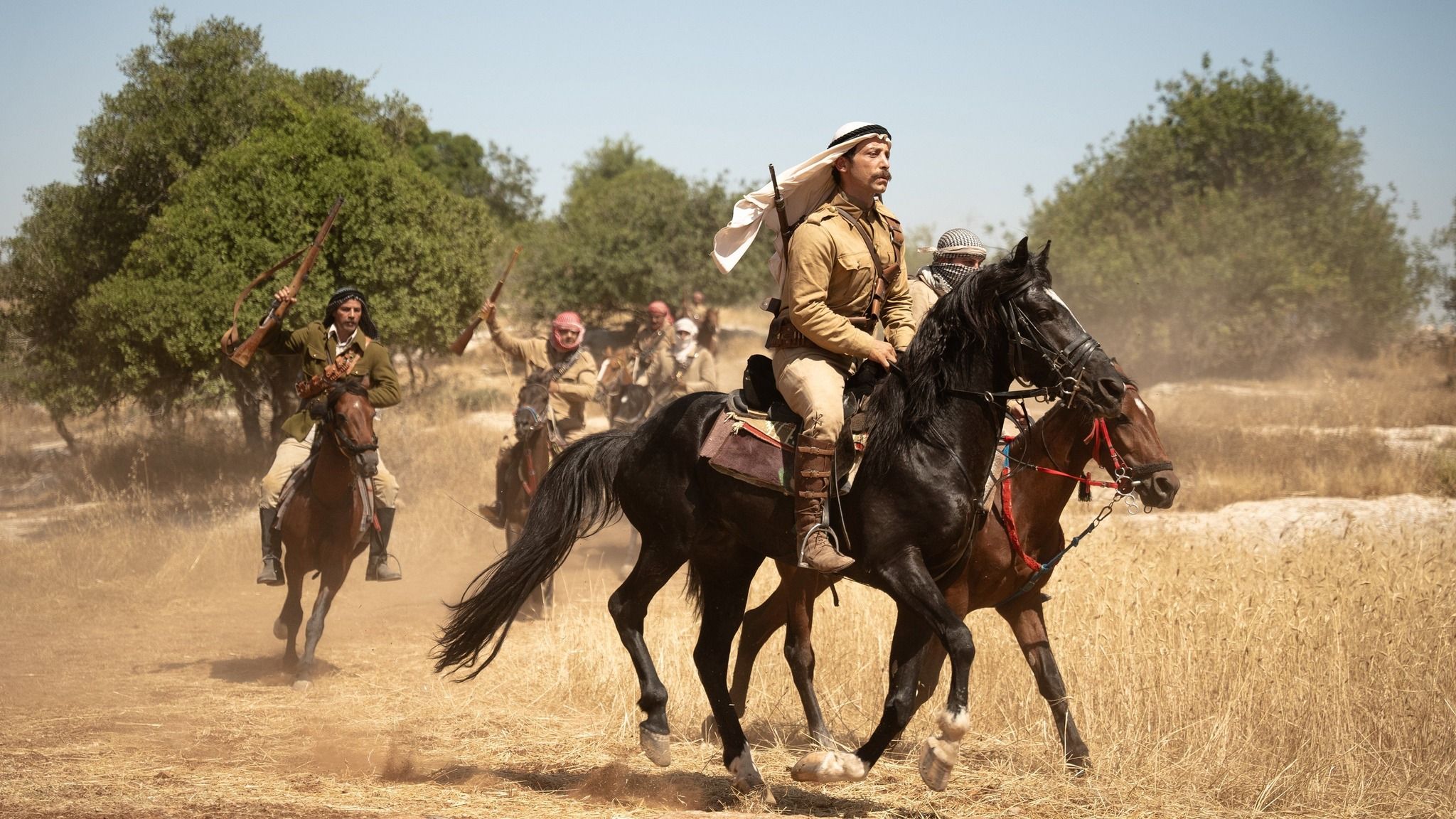
Filmmaker Annemarie Jacir, who is Palestinian, makes films that offer a different perspective from what’s commonly seen. Her historical film, Palestine 36, focuses on resistance and questions two common ideas about the Israeli-Palestinian conflict: that Palestinians started the conflict, and that there was peace before October 7th. While made before the recent events, the film’s release now gives it a particularly strong and hopeful message.
While the film touches on the relationship between Zionist settlers and Palestinians, its main focus is the large-scale revolt against thirty years of British colonial rule in Palestine. The film highlights how the British authorities manipulated tensions between both groups to serve their own goals. Though Jacir criticizes Zionist violence, she expresses even greater anger towards the British ruling class, who largely ignored Palestinian concerns. The film also acknowledges the diverse range of opinions within the Palestinian community during this period of unrest.
A Film of Righteous Anger, Palestine ’36 Is a Historical Film with Present-Day Implications
Director Jacir, known for her hopeful and resilient portrayal of Palestinian life, uniquely captures justified anger in her films. With Palestine 36, she achieves a remarkable feat: a powerful anti-colonial film that looks and feels like a major Hollywood production. Jacir intentionally uses this grand cinematic style to challenge common misunderstandings about Palestine’s history. She’s been surprised by how many people, as she shared after a screening at the 2025 AFI Fest, didn’t realize Palestine was once under British colonial rule.
The story centers on Yusuf (Karim Daoud Anaya), a young man from a rural village who travels to Jerusalem hoping for a better future. He works as a driver for Amir (Dhafer L’Abidine), a political figure, and finds himself torn between his family’s traditional lifestyle and the excitement of the rapidly changing city. Anaya, new to acting, possesses a natural star quality, displaying a compelling vulnerability through his expressive eyes and kind face.
The story around Yusuf is filled with equally powerful accounts, painting a vivid picture of a region on the verge of change. At first, Yusuf optimistically seeks a better life among a diverse group of people, but he soon learns about the injustices happening around him. His boss’s wife, Khouloud, a determined journalist, exposes how the British authorities favor Jewish immigrants. This unfairness fuels the anger of people like Khalid, a dockworker who turns to violence after being denied fair treatment. Meanwhile, Hanan, a devoted grandmother and renowned actress, desperately tries to maintain peace as her family is torn apart.
With increasing violence from the British army in response to protests, Jacir presents a nuanced look at Palestinian resistance. The movement is hampered by internal conflicts and overly optimistic beliefs, hindering progress from the start. Khouloud and Amir clash over whether to compromise with Zionist forces, and Yusuf transforms from a naive young man into a determined fighter.
The British characters also follow individual, shifting paths. Thomas (Billy Howle), a well-meaning diplomat, sincerely believes peace is possible through official procedures, and he supports Palestinians by secretly sharing information with Khouloud. High Commissioner Wauchope (Jeremy Irons) pretends to be neutral but primarily assists the Zionist settlers. Charles Tegart (Liam Cunningham) arrives as the first to suggest building a barrier to control the local population.
Beautifully filmed and thoroughly researched, Palestine 36 subtly challenges claims that Palestine was empty or lacking in urban life before 1948. Through restored and colorized historical footage, the film honors the figures of Palestinian history, highlighting events like the 1929 women-led protests and the establishment of Palestine’s first radio station, while also acknowledging difficult periods. The film subtly foreshadows the displacement of Palestinians a decade later through the story of the Peel Commission, initially presented as a potentially positive development.
The movie explains the historical background in a straightforward way, prioritizing its strong political message. Some characters, particularly Yusuf and Khalid, change their minds very quickly to support the fight for freedom, and as a result, they sometimes feel like symbols rather than fully developed people. With so many storylines, the film feels a bit rushed; it could have benefited from being longer and more detailed, but it still manages to be emotionally resonant and visually compelling. The ending, which shows all the characters traveling onward, emphasizes their unwavering commitment to their homeland and their refusal to give up.
Palestine ’36 screened at the 2025 AFI Film Festival
Read More
- Best Controller Settings for ARC Raiders
- Ashes of Creation Rogue Guide for Beginners
- Stephen Colbert Jokes This Could Be Next Job After Late Show Canceled
- 7 Home Alone Moments That Still Make No Sense (And #2 Is a Plot Hole)
- DCU Nightwing Contender Addresses Casting Rumors & Reveals His Other Dream DC Role [Exclusive]
- 10 X-Men Batman Could Beat (Ranked By How Hard It’d Be)
- Is XRP ETF the New Stock Market Rockstar? Find Out Why Everyone’s Obsessed!
- 10 DC Superheroes Who Defined The Teen Titans, Ranked
- XRP: Will It Crash or Just… Mildly Disappoint? 🤷
- Katy Perry and Justin Trudeau Hold Hands in First Joint Appearance
2025-10-29 01:40